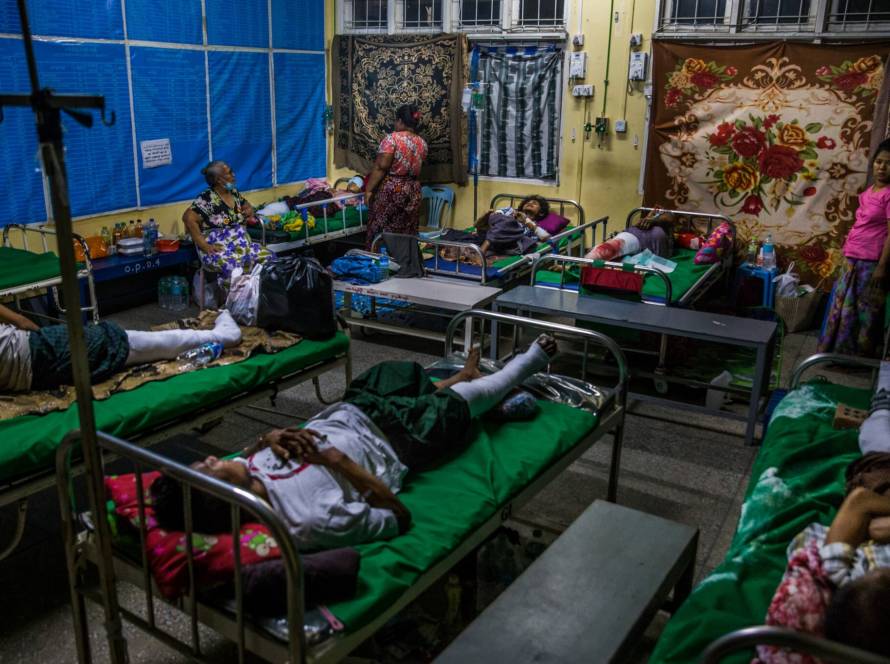By Aavin Abeydeera
In March 2024, the Russian Federation will hold its eighth presidential election. More than 114 million registered voters are expected to cast their ballot in choosing their next executive president. Of course, these elections are set to the backdrop of several key sociopolitical events, with the Russo-Ukrainian War at the forefront.
Amongst the four candidates, incumbent President Vladimir Putin is set to run for his third consecutive term as president. While he is an independent candidate, he is endorsed by, and is de facto leader of, the United Russia Party, Russia’s largest political powerhouse and the base of Putin’s political legitimacy.
His candidacy is possible in large part due to the 2020 amendments made to the Russian constitution, which up until that year, had imposed a two-term limit for incumbents running for the biggest political office in the country.
The deft observer will notice that these amendments did not occur in a vacuum and were part of President Putin’s sweeping project to further consolidate his power as the supreme figure of the Russian sphere of influence. Putin is also facing this election on the back of the ongoing Russo-Ukrainian War, which has been ongoing since 2022.
While a sizable portion of Russians endorsed his imperial ambitions to “reunite the Russian heartland”, almost two years of continuous war, and the strains that come with being a belligerent nation have eroded his appeal somewhat, and most importantly, it has given some of his opponents more legitimacy in their bid for presidency.
Nevertheless, given the lack of democratic procedure in the Federation and the unmistakable appeal of Putin’s track record of leading Russia towards economic and international power, Putin will most likely succeed in securing a third term.
Next up on the fight card is Nikolay Kharitonov, nominee of the Communist Party of the Russian Federation. For Kharitonov, this election is a rematch between him and Putin, who have polled against each other before, during the 2004 presidential elections. As with his earlier bid for presidency, political analysts contend that his bid for the 2024 election is weak and will not pose any serious threat to other candidates.
Leonid Slutsky of the Liberal Democratic Party has gone on record stating that it is not his wish to defeat Putin at elections. Instead, he wants to focus on the prosperity of the nation. His candidacy is puzzling to say the least. While his nomination as a candidate would imply that he is not a supporter of Putin’s rule, his actions and statements indicate otherwise.
His position as one of the members of the Russian committee sent for peace talks with Ukraine, his tacit support for the war effort in the Donbas Region, as well as his aggressive push to execute prisoners in the Ukrainian Azov Brigade aligns him with Putin in terms of policy. All this, points to the fact that for the most part, his run for president is redundant.
So far, these are all old men who share similar if not the same political and policy views. Vladislav Davankov of the New People’s Party is not. Considered by far the most progressive and liberal candidate of the lot, Davankov has promised modernization, decentralization, as well as the eradication of media and public opinion suppression in the country.
His campaign is keenly tracked by the Kremlin, who sees Davankov’s appeal as a young, liberal, and progressive politician to be a threat to Putin’s conservative authoritarian regime. He is rightly seen by the public as a young fresh face in Russian politics and is generally regarded as the best alternative to Putin in this election. Nevertheless, his one similarity to Putin lies in his support for the war effort in Ukraine.
With all these candidates, several common threads can be noticed. Except for Davankov, all other candidates are of advanced age, are ideologically similar, and have, on numerous occasions, stated their support for the incumbent president. All of them, including Davankov, are tacit supporters of Russian occupation of Eastern Ukraine, despite differences in opinion on how best to proceed with the war.
Those who diverge with this flock of candidates have not been approved for nomination; Boris Nadezdhin, whose main campaign point was his anti-war agenda, had been disqualified from the presidential race on technical grounds.
Yekaterina Duntsova is another reject of the elections committee, with her socially progressive, anti-war, pro-LGBT and minority rights campaign being disqualified, once more on technical grounds. Again, a common plot thread emerges in this election- stray too far from what is within the realm of Putin’s blessing, and risk delegitimization.
Perhaps the most interesting omission of this election cycle is that of Alexander Navalny. As of the February 24, Navalny was reported dead while serving a 19-year term in a labor colony.
Given that his imprisonment was allegedly a response by the Putin regime to put an end to Navalny’s open and highly visible criticism of the sitting president’s blatant abuses of power, the circumstances of his death are highly suspect. Some election watchdogs state outright that Navalny’s death was the result of Putin wanting to remove his most dangerous opponent; no facts point to the contrary.
Given these facts, activist groups have called for international governments to recognize the upcoming elections as illegitimate, and Russian politicians have gone on record stating that the election is not an exercise of functioning democracy, but merely a bureaucratic tool for Putin to further consolidate his power.
It should be clear by now that this entire election bears the telltale signs of illegitimacy. The incumbent, having bent constitutional restrictions to his advantage, seeks to consolidate power amid growing dissent.
The candidates save for one are weak, and present little to no alternative to the Russian people in terms of policy, governance, or principle. Those who present clear cut opposing alternatives to the incumbent’s rule tend to be delegitimized. If that does not recall the desperate power grabs of failing dictatorships in their final years, it should.
Putin will most likely secure his third term. His victory will have certain important repercussions. The most likely of them will be further aggression in the Russian frontiers, such as the Donbass, as well as increased hostility and displays of power on the international stage.
This is Putin’s will: not necessarily to make Russia a powerful state, but to make himself the most powerful man he can possibly be. As to the growing dissent within Russia’s borders in opposition to Putin’s regime, only time will tell if the Russian people will be able to rally around a figure strong enough to face Putin.
Where they will find that strength is a question for another think piece. For now, it is safe to assume that this strength will not come from the ballot anytime soon.
Aavin Abeydeera is an undergraduate at the Faculty of Law of the University of Colombo. A graduate of the BCIS, his interests range from geopolitics, economics, and foreign policy to culture and sports. He can be reached at aavinabeydeera@gmail.com.
Factum is an Asia Pacific-focused think tank on International Relations, Tech Cooperation, and Strategic Communications accessible via www.factum.lk.
The views expressed here are the author’s own and do not necessarily reflect the organization’s.


